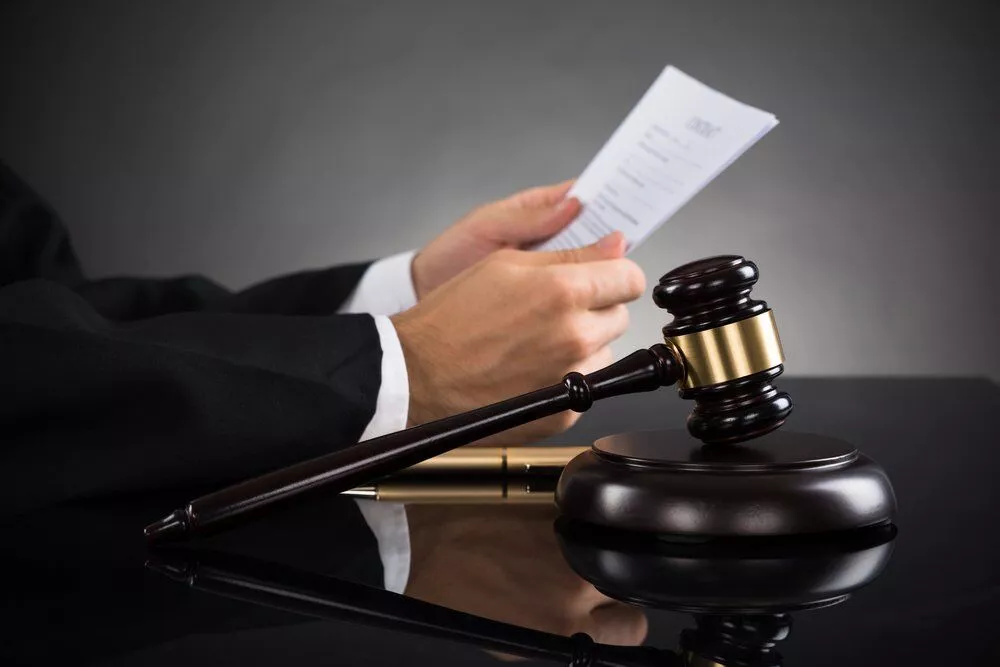
Can a Victim Talk to the District Attorney?
The contents of this web page are for informational and educational purposes only, and nothing you read is intended to be legal advice. Please review our disclaimer before taking action based upon anything you read or see.
Can a victim talk to the district attorney? Yes. A victim has the right to speak with the district attorney. On the other hand, the victim must carefully evaluate whether or not to communicate with the district attorney. This must also be adapted to that particular person and scenario.
Like any other person in public, a victim has the right to speak with the district attorney. He may contact the district attorney’s office by picking up the phone. He may also write letters to the district attorney. However, there is no assurance that the DA would respond to the call or agree to talk with the general public, the accused, or the victim.
Learn the difference between a district attorney and a lawyer.
However, if the victim’s case is allocated to him and the victim phones, the district attorney will most likely be open and interested in meeting with him. And besides, the victim is a witness in the District Attorney’s case. And the DA may have to depend on the victim as a witness later to win his case.
During such conversations, the DA may obtain case material, evaluate the victim as a possible witness by relating to his capacity to remember events, articulate herself well, or both.
He may also attempt to establish a trusting bond. The victim might also utilize the opportunity to learn more about the case and submit more facts to the attorney. Come along as we elaborate more on this below.
What is a Victim’s Right to Speak to a District Attorney?

Overall, a victim in the lawsuit does have some rights. However, the victim doesn’t have the right to speak with the DA about anything.
Instead, the ‘right’ is often reserved for certain case components, such as a prospective negotiated plea bargain.
Furthermore, no explicit regulation forbids a defendant in a criminal case from meeting personally with the district attorney to resolve the charges. Nevertheless, most jurisdictions have ethical laws stating that prosecutors are not permitted to interact directly with clients represented by a counsel.
If a lawyer does not back an individual, they should decline to talk with the District Attorney. This is due to the possibility that the accused will provide the prosecution with data it did not have.
What Information Can a Victim Discuss with the District Attorney?
A Victim can Discuss the following information with the District Attorney:
- The information is included in a police statement.
- Details from a grand jury investigation.
- Testimonials from alleged crime victims.
A victim who talks with the District Attorney should use caution as well. This is correct since he wants to provide the correct information. This implies that the victim may provide facts that the DA did not get or could not.
What is the Process for Speaking to a District Attorney?
There are several reasons to consult with a District Attorney. Whatever your motivation, you’ll want to write a proper, courteous letter to ensure your query is successful. You should also submit any relevant facts to back up your claim. Whether the situation is a trial, reporting crimes, or responding to a traffic violation, this is true.
You can use the following steps to contact a District Attorney;
Check online for the exact location or contact the county court.
An internet search for “district attorney” and the county or city name will nearly always provide an email and geographical address. You may also contact the county or local court to get this information.
If you seek the individual attorney managing your case, you can email or phone the county or local court clerk.
Here is some best case management software.
Make your letter brief and official.
Make your letter as short as possible while containing all the necessary information. Even if you are outraged, for example, if you were a victim writing when your case was not pursued, make your letter official and courteous. This is the most effective technique to secure a favorable reaction.
Request that your trial date is continued or extended.
If you are a plaintiff and need additional time to prepare your case, you may occasionally request a delay from the district attorney. However, in other areas, you will be required to present in person. In your letter, explain why you require a continuance.
How Can a Victim Prepare for a Meeting with the District Attorney?

A Victim can Prepare for a Meeting with the District Attorney through the following tips:
Recognize that you have the right to be informed of what is happening in the process.
You can contact the Victim Witness Coordinator if you have any questions concerning the case you are engaged in. Additionally, the Assistant US Attorney or the criminal justice officer in charge of your case may contact you at different points of the procedure.
Make an appointment with the District Attorney.
You may be required to attend any meetings with the District Attorney. As a result, when the district attorney schedules such a meeting, you should be there on time. Unless an exigency forbids it, this is correct. If you have received a subpoena or a legal order to appear, you should be aware that disobeying such an order might result in significant consequences.
If you know ahead of time that you cannot attend the meeting, notify the district attorney promptly so that the schedule may be adjusted.
Plan your visit to the court.
As a victim, you may have concerns regarding transportation, courtroom location, or where you should go and when to appear. You may inquire about them with the case supervisor, the deputy United States Attorney, or the Victim-Witness Facilitator.
What is the Impact of a Victim’s Perspective on a Case?
Victims play a critical part in the criminal justice process. This involves filing a police complaint, testifying at trial, and delivering a victim impact statement. Victims’ responsibilities are supported by their rights to knowledge, participation, protection, and retribution. Victims may also access information that will help them during the process.
It is also critical for the court to understand the effect of this crime on its victims. Victim impact statements detail the crime’s emotional, physical, and financial consequences for you and others. Victim impact statements may be either written or spoken. The victim impact statement also helps the court determine what punishment to impose on the perpetrator.
Conclusion
To conclude, district attorneys wield enormous decision-making authority, and their judgments greatly influence the community. They have the authority to determine whether criminal charges are filed, which cases are dropped or diverted from court, and, to some degree, the penalties that those convicted of crimes incur. Furthermore, a victim has the option of speaking with the district attorney or not.
There are good and negative reasons for either option, and you should consult with the DA if you believe it would be detrimental to you or your position. Talking to an attorney about strategy when a call comes in would be best.
Expert Advice
Whether you are a crime victim, you may wonder if communicating with the district attorney is required. Only while testifying in a criminal process – responding to questions from the witness stand under oath – is necessary to speak with the District Attorney. Only in such cases may a district attorney force witnesses to testify.
However, the DA can only force you to testify if you have been duly served with a subpoena. You can use your Fifth Amendment right to avoid implicating yourself with your statement.
But be cautious. If you have been lawfully summoned and fail to appear in court, the judge might hold you in spite. This is true even if you had the option of pleading the Fifth.

I’m a driven and accomplished law graduate and post-graduate, passionate about sharing my legal expertise via my blog. I hold a Bachelor’s degree in Law from the University of London (UK) and a Master’s in Law from the University of Derby (UK). Both gave me the foundational knowledge and skills to excel in my chosen career path.
Throughout my academic journey, I have gained extensive knowledge in various fields of Law, including Corporate and Business Law in the USA, Criminal Law, International Law, US Copyright law, and most importantly, American Constitutional law.


Comments are closed.